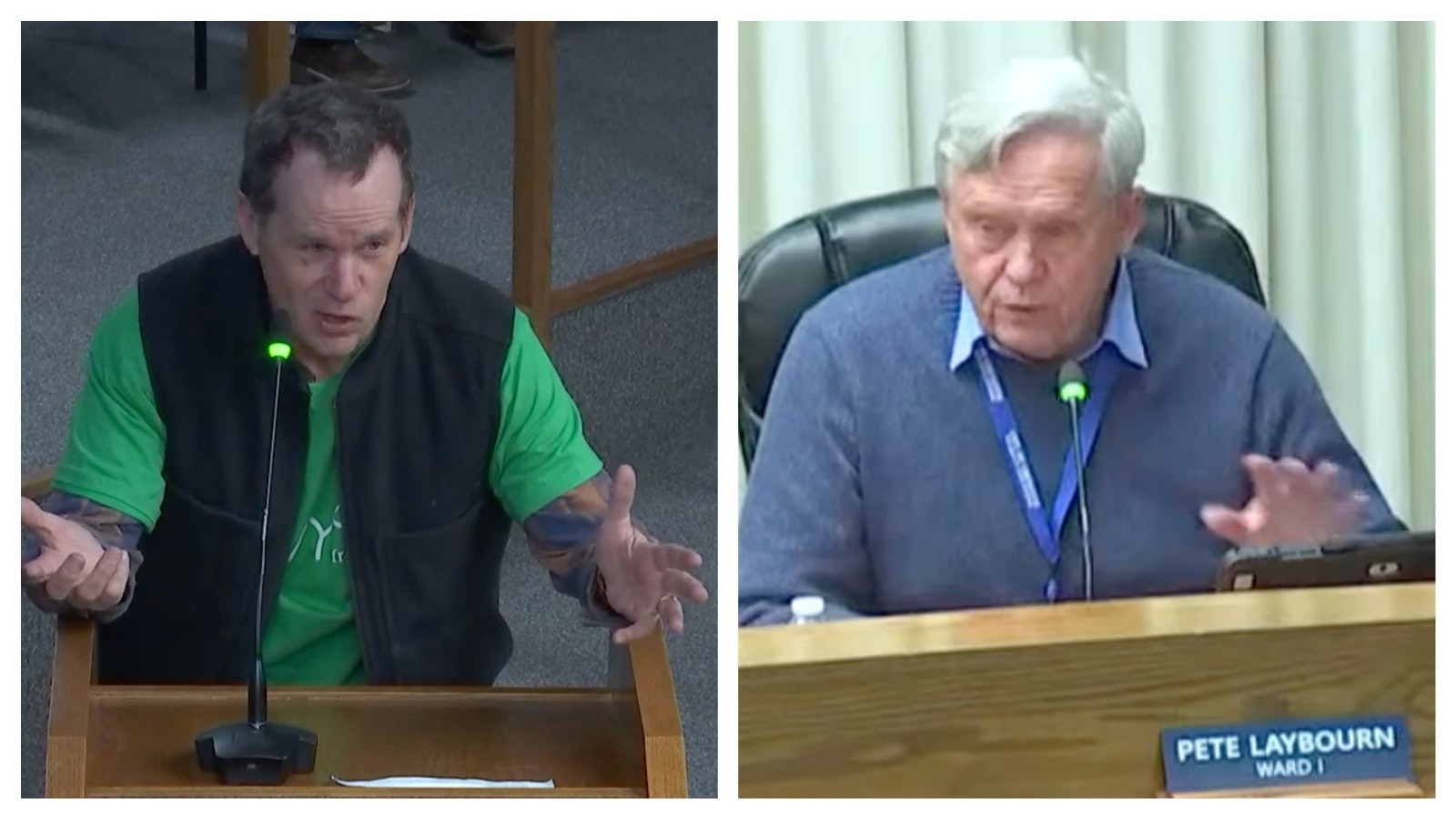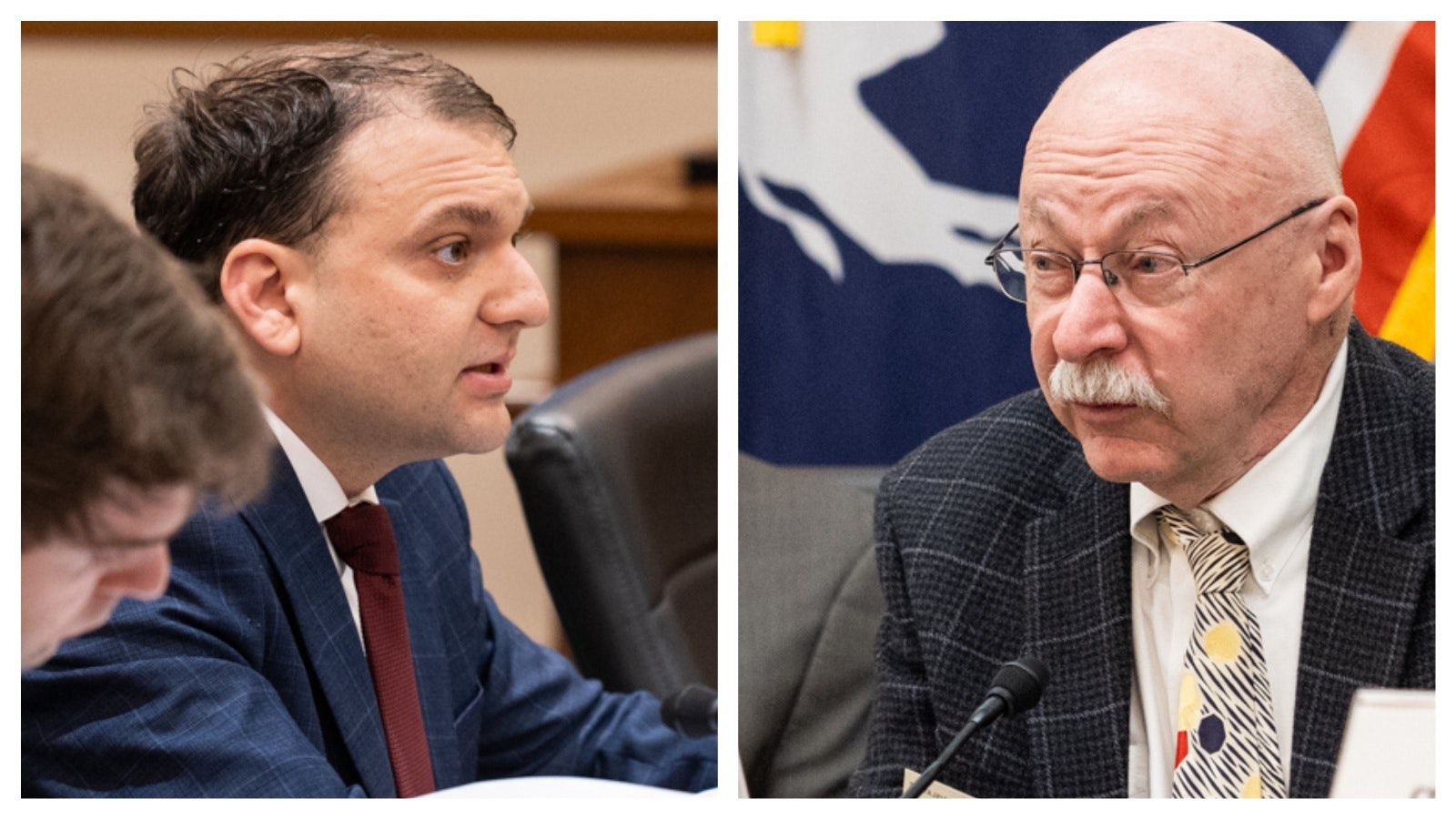The Wyoming Treasurer’s Office is defending the management of a long-term investment pool from which a number of local governments in Wyoming have pulled nearly $200 million from over the past year.
Josh Kevan, a senior consultant for a firm that consults for the State Treasurer’s office, told the State Loan and Investment Board on Thursday that a Tuesday Cowboy State Daily story that reported the WYO-STAR II investment fund was down 55% in June from 2022 was “wildly off the mark as far as what we see here.”
He pointed to a spreadsheet that outlined the fund’s investment returns; however, the original story referenced numbers from the state’s own report on the WYO-STAR II fund, showing under columns labeled “market value,” that it was down more than $106 million in June and down nearly $199 million fiscal year-to-date.
At this time last year, the fund had $259 million, which means entities pulling their money from WYO-STAR II over the past year have reduced its balance by 55%.
The story never described the hit to WYO-STAR II as an investment loss, but it did describe the $106 million loss to the account’s balance as a loss to its “market value.”
The Treasurer’s office also criticized describing it as a loss in “market valuation” in a Thursday letter written by Chief Financial Officer Katie Smith to participants in the WYO-STAR II account. Financial statements obtained by Cowboy State Daily for the story use the “market value” term when describing the amount in this account.
Kevan pointed out that local governments can choose between WYO-STAR I and WYO-STAR II when deciding whether they want short- or long-term investments.
State Treasurer Curt Meier told Cowboy State Daily some of the parties withdrawing from the account don’t understand how it works.

Then Why Pull Out?
To SLIB on Thursday, Kevan pointed out that WYO-STAR II’s investments have grown 2.2% over the last year. He also said the performance of this account has exceeded its forecasted benchmarks.
“It continues to be a high-quality, well-managed portfolio,” Kevan said.
Secretary of State Chuck Gray asked Kevan why entities have been pulling out of the WYO-STAR II account if it’s so well-managed.
“That doesn’t make any sense to me,” Gray said.
Not A ‘Penalty’
Converse County was charged 10% off its $2.6 million investment when it decided to withdraw all its money from its WYO-STAR II account. Natrona County, which had the largest impact on the account when it took out all of its $98 million, took a $3.5 million hit.
Smith said these charges are only being “construed as a penalty” and were “a reasonable amount.”
Gray asked why local governments would be willing to forfeit millions of dollars to take their money out of their account if it was successful.
“Why would a sane entity pull their money out then and take that kind of hit?” he questioned.
Kevan didn’t have an answer to the question.
Gray also asked Kevan if he finds the WYO-STAR II fund healthy and if he has any suggestions on how to improve management of the fund.
“I haven’t heard anybody that’s gotten back to me that they think this is being managed right,” Gray said.
The state of Wyoming is responsible for the administration of the account, but J.P. Morgan is contracted to invest that money.

‘Education Challenge’
Kevan described the situation as “an education challenge” between the state and participants, and said the fund is well-run.
“This has delivered on what it’s designed to do and it is a well-diversified, high quality program,” Kevan said. “If somebody thinks there’s something wrong with it, it’s a lack of knowledge, a lack of insight and a lack of appropriate perspective.”
Converse County Treasurer Joel Schell disagrees, telling Cowboy State Daily for the Tuesday story that what’s happening with the WYO-STAR II account “is a mismanagement of funds. … If they can’t give me 2% of their assets in cash without taking a significant loss, then they’re not managing the fund properly.”
Meier said local entities may not understand that the financial market has changed since they first invested, leading to a lower rate of return on their bonds than if they were bought today. He said there’s inherent shortcomings when local governments are allowed to invest their own money because of a lack of knowledge.
Natrona County, the city of Cheyenne and Converse County pulled all or nearly all of their money from the WYO-STAR II account. The State Treasurer’s office reported to Cowboy State Daily that seven participants have fully liquidated their investments out of the account in the past three months.
Smith also had a problem with Schell, who said in the Tuesday story that, “whoever becomes the proverbial last man standing in the WYO-STAR II pool stands to suffer the biggest loss of all.”
“This is not the case,” Smith writes in her Thursday letter. “Our practice is to withhold a reasonable amount for any full account liquidations, or large withdrawals, to cover any realized losses that may be incurred due to the sale of securities necessary to raise the cash for such withdrawals.”
Smith said this practice protects other investors who are still enrolled in the account.
Meier said local governments that were upset about experiencing losses from the account made poor decisions and were warned about the risks of participating by the Treasurer’s office.
“If they can’t understand a simple duration formula on a very mid-term bond portfolio then … the water is going to be over their ahead,” he said. “The water is over their head right now. They don’t understand where they’re at and how they got there.”
Gov. Mark Gordon also mentioned how participation in this fund is optional.
Patrick Fleming, chief investment officer for the State Treasurer’s office, said he spoke to every participant in the account personally when it first started and explained how it works. He said it’s the inherent nature of the account that when interest rates go up the bonds will underperform.
Gray mentioned organizing an oversight hearing to discuss the matter with the parties affected in WYO-STAR II.
“Part of the problem of this society these days is that everyone assumes everyone has background in everything,” he said. “You have to help.”





